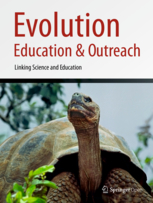I’m happy to present this guest post submitted by Amanda I. De Cun, MPS Candidate Marine Ecosystems and Society, Intern with the Department of Ocean Sciences at RSMAS University of Miami.
 The STEM field has become increasingly popular and important in the past few years. Encouraging grade school students to participate in STEM activities have been shown to make an impact in their chances of high school graduation and being accepted into college. In fact, one program has seen first-hand what a difference STEM immersion can do for a student.
The STEM field has become increasingly popular and important in the past few years. Encouraging grade school students to participate in STEM activities have been shown to make an impact in their chances of high school graduation and being accepted into college. In fact, one program has seen first-hand what a difference STEM immersion can do for a student.
One program that has made an incredible impact on Miami-Dade County high school students since its inception in 1999, has been the Frost Science Upward Bound Math and Science program (UBMS), funded by the U.S. Department of Education. UBMS understands the importance of science in the classroom, but has also realized that under-resourced students often miss out on a science focused curriculum in school as well as lacking science role models in their lives. To defeat this problem, the UBMS program enlists students from Title 1 schools in the Miami area and enrolls them in a four year, after school, weekend and summer program geared towards STEM curiosity. The program inspires these under-resourced students the opportunity to see a world of post-secondary study, motivating them to complete high school and become the first generation in their family to be accepted into college.
The UBMS program provides these students with access to mentors, interactions with scientists and technology as well as a six-week summer program called IMPACT (Integrated Marine Program and College Training). In partnership with the University of Miami Rosenstiel School of Marine and Atmospheric Science, these students are able to immerse themselves with marine science curriculum through activities with the university such as shark tagging expeditions, outdoor field experiences and field trips to state parks and marine sanctuaries and conduct research projects mentored by graduate students and M-DCPS teachers.
The IMPACT curriculum always includes the theory, practice and tools associated with different subjects ranging from oceanography, marine biology, geology, and ecology, meteorology and resource management. At the end of their six-week summer program, the students are given the opportunity to present their projects and are recognized by museum staff, scientists, families and peers for their dedicated accomplishments.
This summer, I was given the opportunity to present and give a lecture to these students during their six-week IMPACT program at the University of Miami Rosenstiel School of Marine and Atmospheric Science. As a current RSMAS graduate student, I am fulfilling my internship requirement under the direction of Dr. Vassiliki Kourafalou, a professor in the Ocean Science department, who is currently doing research with funding from the GoMRI project (Gulf of Mexico Research Initiative) which is a “10-year independent research program created to study the effect, and the potential associated impact, of hydrocarbon releases on the environment and public health, as well as to develop improved spill mitigation, oil detection, characterization and remediation technologies†(Gulf of Mexico Research Intiative 2013). In easier words, to understand the effects of oil on the environment and how to be better prepared in case another oil spill like the Deepwater Horizon explosion were to happen again.
During my internship, I spent most of my time researching and understanding the work related to the GoMRI project, created lectures and presentations for high school classrooms and attended outreach events. I felt really lucky to be given the opportunity to present to these IMPACT students, because coming from a previous career as a high school biology teacher, I understand the importance of communicating science to young people, while making them interested in it at the same time. To be invited by the outreach coordinators at IMPACT and asked to be a small part of an amazing program like UBMS, was extremely gratifying. Knowing I made a positive impact on these students is a feeling that every teacher, volunteer, outreach coordinator, mom, dad, whoever it may be, wants to feel and experience.
With over 1,000 students participating in their program since 1999, 98% have graduated high school and 95% have been accepted into a post-secondary institution of study, with the majority pursuing STEM fields (UBMS 2017). The UBMS program has made it extremely clear that when you provide students with the necessary tools to succeed, they will, in fact succeed.







